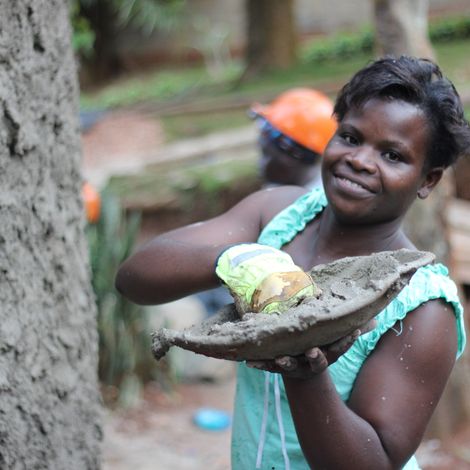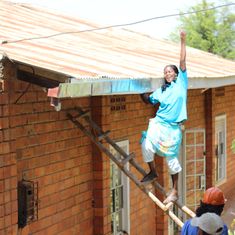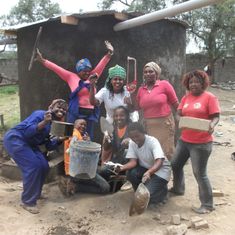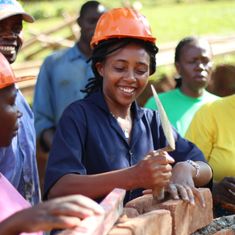Global Women's Water Initiative





GWWI trains women in Sub-Saharan Africa to bring clean water and sanitation to their villages. Why women? Women and girls are the most affected by the lack of water in their villages because they can spend upwards of 8 hours a day fetching water and doing water-related chores so women can't work and girls can't go to school. They are also caretakers of their families, and when family members get sick, they spend money on clinic and medicine and lose productivity. The World Health Organization estimates that over half the hospital beds in the world are occupied by people with water related disease!
In addition, 1 out of 10 girls drop out of school by the 8th grade because there are no sanitation facilities in school and they have no where to relieve or wash themselves when they have their periods. They are also at risk of being violently attacked and even raped when they have to fetch water or openly defecate.
To make matters worse, the UN Food and Agriculture Organization found that the 'exclusion of women in water and sanitation projects, is the cause of their high rate of failure'. Despite their deep relationship with water, they aren't even included in decision making and so water projects fail because of it!
GWWI is changing that. Not only are we training women to build water and sanitation technologies like rainwater harvesting systems, water storage tanks, toilets, clean water filters and more, we are making sure they know how to conduct water, health and hygiene workshops so people know how to reduce their risk of water related disease. The women earn money as water specialists building, training and making and selling hand made hygiene products. With our support, the women are also being asked to serve on their local water boards, ensuring that their voices are heard when it comes to issues that directly affect them.
Our women are being transformed from passive recipients of failed water projects to water providers, trainers and leaders!